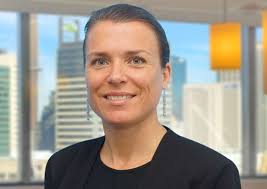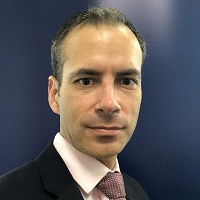2021 Education & Seminar Series

Social Engineering: Manipulation & Protection of your Confidential Information
Wednesday, 17 February 2021 12.30-1.30pm
Speaker : Quin Rijnders

In this session, Quin will explain what Social Engineering is, provide examples and practical ways to spot social engineering.
This will enable attendees to protect their identity online: ie on websites, emails and most importantly their smartphone interactions via calls, messages and apps.
The Speaker – Quin Rijnders, Executive Director, Advisory, Forensic Services, BDO Sydney
Quin has more than 15 years of experience in senior finance roles in semi-government organisations (Higher Education), and providing Forensic Accounting and Technology services across a range of sectors.
Services
- Financial Forensic investigations
- Fraud investigations
- Internal (fraud) control reviews
- Forensic data analysis
- Computer forensics / cyber investigations
- eDiscovery.
Sectors
- Financial Services: Banks, Insurance and Investment Management organisations
- Law Firms
- Retail and FMCG
- Transport
- Real Estate
- (Semi) Government and Higher Education.
Key assignments
- Financial Forensic investigations
- 50+ Forensic data analysis engagements into expenses / claims
- Regulatory remediation assistance for AML, LIBOR/FX/BBSW reviews
- Extensive experience in providing eDiscovery Services for General Counsel and external Legal counsel
- Computer forensic engagements, reconstructing facts around cyber incidents.
Quin’s main expertise is in reconstructing / building chronologies of financial transactions and processes, forensic data analysis, computer forensics and eDiscovery. As Executive Director, Forensic Services at BDO, Quin leads Forensic Accounting and Technology work in Sydney and co-leads (with the Partner) Sydney’s Forensic practice.

Engaging Employees and Stakeholders in your Anti-fraud and Corruption Program
Wednesday 17 March 2021 12.30-1.30pm

Speaker : Dr Allan Yates, Senior Specialist, Fraud and Corruption Risk, Group Financial Crime, IAG Sydney

A joint presentation with the Association of Certified Fraud Examiners, Sydney Chapter
‘No one wants fraud or corruption on their watch; unless they’re the one committing it’:
Many organisations have a ‘zero-tolerance’ approach to fraud and corruption, with policies and strategies designed to prevent their incidence or manage their risks. Yet, if they are not ingrained within organisational culture and practice, the risk still remains, and the reality can be a daunting one for any organisation tainted by fraud or corruption.
This presentation highlights some of the organisational challenges associated with implementing and embedding anti-fraud and corruption programs. It discusses some practical solutions, with a focus on employees and broader stakeholder groups, who are pivotal in the development of long-term sustainable success.
Dr Allan Yates is employed by IAG in Group Financial Crime, Fraud and Corruption Risk. Allan has more than 20 years of experience in the prevention, education and investigation of fraud and corruption. This spans different sectors within the UK and Australia, including health, higher education and local government. Allan holds a PhD from the Australian National University for his thesis which explored perceptions and experiences of corruption within NSW local government.
We are pleased to partner with the ACFE Sydney Chapter in this joint presentation
The ACFE is the world’s largest anti-fraud organization and premier provider of anti-fraud training and education. Together with more than 82,000 members, the ACFE is reducing business fraud worldwide and inspiring public confidence in the integrity and objectivity within the profession. acfesydney.org.au

Webinar: Conflicts of Interests – Privacy and Disclosure
Date / Time: Wednesday 21st April 2021 12.30-1.30pm
Speaker: Chris Wheeler, Consultant, Former Deputy NSW Ombudsman & Part-time Commissioner – Greyhound Welfare & Integrity Commission

Session Synopsis:
This presentation will focus on operational and procedural complexities involved in attempting to manage conflicts of interest that have been highlighted in a number of recent media articles and a report published by the NSW Ombudsman in 2020.
These include highlighting issues around:
- Who, the reports of conflicts of interests, should be made to in various circumstances that can arise?
- In what circumstances should the holders of such information disclose conflicts of interest to others within the organisation?
- Should there be a checking mechanism in place to ensure such disclosures are appropriately made?
- What options might be available to address in-built/structural conflicts of interests, for example where local councils are the applicant and determination body or Ministers have input into the selection of recipients for government grants?
- When does an acquaintance become a friend, and a friend become a close associate or a ‘closely related party’?
- Given that, apparently, 10% or more of couples meet through work:
- what disclosure requirements could an employer reasonably insist on?
- at what point in a developing relationship can employees be expected to make such a disclosure (and the complications that arise when a relationship is an ‘affair’)?
- what management arrangements could an employer reasonably implement to address any such disclosed conflict?
- how can power imbalances be addressed in the management of such a conflict?

Webinar: Applying Behavioural Insights to Anti-Corruption and Fraud Prevention

Dr Dave Trudinger – Dave is responsible for the strategic direction of the NSW Behavioural Insights Unit (BIU). He brings a focus on demonstrating impact, supporting delivery and empowering public service partners and has worked in consultancy, frontline community services, academia and government across several Australian jurisdictions and the U.K.
Behavioural Insights (BI) is emerging as a key tool for policy makers and organisations with approximately 600 BI teams globally, of which over 200 are in Government.
Behavioural insights draws on evidence from the behavioural sciences, psychology and economics to prompt behaviour change and help organisations achieve better outcomes. By understanding how people think and behave, as well as their decision-making environments, BI can help shift individual’s behaviour by subtly changing the way decisions are presented.
This session, by the NSW Behavioural Insights Unit (BIU), will include an overview of behavioural insights and its methodology, how it can be applied by fraud and anti-corruption practitioners to encourage compliance to procedures, and how frictions within processes (also known as ‘sludge’) can be a barrier to people performing the desired behaviour.
During this session, BIU will share the results of their work that leverage the power of BI to help solve complex policy issues, and how it has made interacting with Government easier for citizens of NSW.
The BIU, which sits within the Department of Customer Service, was the first Government BI team in Australia and was recently identified in a World Bank report as one of the top ten Governments applying BI to policy. BIU’s work is driven by evidence – this includes designing and testing solutions using the most rigorous evaluation methods (often randomised controlled trials) to determine what works. The BIU has worked across a broad range of issues including increasing: compliance to COVID-safe behaviours, on-time payment of fines, apprenticeship course completions, hospital attendance and more. The BIU are also responsible for building behavioural insights capability across the public sector. To learn more about their work, visit: bi.dpc.nsw.gov.au

Seminar: An overview of and the case studies from the Commission’s investigation into Canterbury Council (Operation Dasha).
In March 2021, the NSW Independent Commission Against Corruption released its report on Operation Dasha, which investigated allegations of corrupt conduct concerning the former Canterbury City Council.
This investigation looked into the conduct of a number of public officials including former councillors, the former general manager, and the former director of city planning. The allegations were that they dishonestly and/or partially exercised their official functions in relation to planning proposals and/or applications in the Canterbury City Council local area.
The ICAC also investigated the circumstances surrounding the appointment of the director of city planning.
In this presentation, Senior Corruption Prevention Officer (Planning) Antony Pedroza will provide an overview of Operation Dasha, and work through several elements of the investigation to highlight key corruption prevention issues and lessons to be learnt.
Speaker Profile: Mr Anthony Pedroza, Senior Corruption Prevention Officer

Antony Pedroza, Senior Corruption Prevention Officer (Planning), joined ICAC in 2010.
Antony is a qualified planning professional with over 20 years’ experience working in local and State Government. His experience in planning entails operational aspects, in particular the assessment of development applications and the making of environmental planning instruments, and has a practical appreciation of the political context in which the NSW planning system.
Antony’s planning experience and practical knowledge to his current role with the ICAC in its investigations and corruption prevention work. This includes ICAC’s February 2012 discussion paper, Anticorruption safeguards in the NSW Planning System and, most recently, its investigation into corrupt conduct at the former Canterbury City Council (Op Dasha).

Date: Wednesday 21st July 2021
Time: 12.30pm – 1.30pm
Venue: Sydney Mechanics School of Arts, Level 1, 280 Pitt Street Sydney 2000
Topic: Cyber Attacks – The Human Element
The cybercriminal relies on the human factor ie the target of the attack (the human) to be unaware and uninformed of tactics used in phishing attacks.
Cybercriminals trick users and steal their money and/or private information in a number of ways.
One example is by registering a domain that has a misspelling or typographically mangled version of a legitimate domain to trick users who mistype the URL or do not look closely at email headers. If a user mistypes the domain they will be directed to a site that looks almost identical to the real website, which will be a modified version that lets attackers harvest credentials and steal funds once the it is opened.
Ross will discuss even more ingenious ways these cyber criminals attack and how to outsmart them.
Speaker Profile
Ross Widdows, Partner, Cyber Security Advisory, BDO Sydney

Ross Widdows is a Cyber Security and Technology Partner, in BDO’s Sydney Advisory practice. With more than 15 years experience, Ross has worked around the world, including operational roles across industry and providing consulting services at professional firms in Europe, the Middle East and Australia.
With his strong background Ross’ core expertise lies in helping organisations to identify and protect their essential information assets and develop fit for purpose cyber strategies and control environments.
REGISTER HERE FOR IN PERSON SESSION
REGISTER HERE FOR ONLINE SESSION

Webinar: Understanding corruption risk in procurement
Date: Wednesday 18th August 2021
Time: 12.30pm AEST
Speaker Bio – Dr. Benjamin Marx, Corruption Prevention, NSW ICAC

Dr. Benjamin Marx commenced in ICAC’s Corruption Prevention division in 2006. He has managed or led many ICAC corruption prevention projects, including those on employment screening, invoice payment controls, IT contractors, and NGO-delivered human services. Dr. Marx has also performed or managed corruption prevention analysis on over a dozen ICAC investigations and has led many internal analyses of ICAC complaint data. He recently returned to ICAC from an 18-month secondment to Transport for NSW where he was responsible for TfNSW’s corruption prevention program. Prior to working at ICAC, he completed a Ph.D. in Psychology at the University of Sydney that explored some of the cognitive and attitudinal elements of moral reasoning, having previously conducted research on relative risk judgments.
Synopsis of Session
It is well known that procurement can carry marked corruption risk. However, ICAC investigations keep finding serious corrupt conduct related to procurement. Part of the reason for this is that the nature of corruption risk in procurement is often not well understood, leading to it being poorly controlled.
This presentation explores the nature of corruption risk in procurement. It begins by discussing in general terms why procurement can carry marked corruption risk. It then explores what makes some procurements particularly risky for corruption considering factors related to:
- the transaction
- market conditions
- the procurement process used.

Webinar – Monitoring and Surveillance in the Workplace – Ethical and Legal Matters
Date / Time: Wednesday 15th September 2021 from 12.30-1.30pm on Zoom.
As remote, digital and working from home continues to evolve, it may be reasonable for an employer to monitor some activities to ensure staff are doing their work and using resources appropriately. New South Wales has laws guiding how employers can effectively monitor their employees and stay on the right side of the law.
Employers may install and/or use:-
- monitoring software on a computer, to monitor screen activity and keystrokes;
- Closed Circuit TV (CCTV),
- GPS locators;
- Record telephone conversations; and
- Monitor work email content.
However, questions arise:-
- What rights do employers and employees have?
- Can employee privacy be protected?
- What are the ethics involved?
Our two speakers will give their viewpoints from both an ethical and legal perspective.
Speakers
Ms Cris Parker
 |
Ms Cris Parker is Head of The Ethics Alliance & The Banking and Finance Oath at the Ethics Centre. Experience Cris heads The Ethics Alliance, a community of organisations across sectors that works to collaboratively shape the future of business ethics. She is also a director of The Banking & Finance Oath, a pledge of integrity and commitment that aims to increase consideration of stakeholders and decision-making accountability by financial service professionals. She holds a degree in psychology. |
Mr Aaron Goonrey
 |
Aaron Goonrey is an employment law specialist and is experienced in all areas of workplace relations and safety law for the Sydney law firm Lander and Rogers. Experience Aaron supports clients with their employment and human resources matters across all sectors. He works with clients both domestically and on cross-border matters to deliver practical and commercial solutions in crucial and significant employee relations situations. Aaron helps clients with issues such as: workforce restructuring, business protection, workplace and regulatory investigations and managing challenging employee issues. |
SESSION VIDEO

Webinar: Update on corruption prevention-related standards
In this presentation, Dean Newlan will speak about updates contained in the revised Fraud and Corruption Control Standard (AS 8001:2021). He will also discuss ISO 37002:2021 Whistleblower Management Systems – Guidelines, as well as plans for ISO 37003 Anti-Fraud Controls and ISO 37008 Internal Investigations.
Date / Time: 20th October 2021 – 12.30pm
Speaker Profile

Dean is a retired partner and now consultant to McGrath Nicol’s forensic practice. He is a forensic specialist with more than 30 years of corporate investigation and consulting experience at KPMG and McGrath Nicol following ten years’ service with Victoria Police.
Dean was convenor of a working group formed by Standards Australia to provide the technical content that produced Australia’s Fraud and Corruption Control Standard (AS 8001) revision in 2008 and 2021 and the Whistle Blower Protection Standard (AS 8004).
Dean was also a member of the ISO Organisational Governance Committee working group that developed ISO 37002:2021 Whistle Blower Management Systems – Guidelines which was released in July 2021.
He lectured in forensic accounting at La Trobe University for nine years and at the University of Melbourne for 15 years. He is director of McGrath Nicol’s Financial Crime Exchange a knowledge hub for financial crime control specialists and a foundation member and former national president of the Australian Institute of Professional Investigators.
Dean will provide and update on how standards are revised and new standards developed a process that take on average 4 years.

CPN Session – Business Ethics Decoded – Is that Business with Ethics, or as an extra?
Date / Time: Wednesday 17th November 2021 at 12.30pm AEST
Location: Online Only
Session Content / Description
This session will explore the evolvement of ethics within the business environment, the introduction of Codes of Ethics and what relevancy they have in the workplace. With competing economic and organisational mission statements it appears that competing individual, corporate and commercial values suggest that compromise is needed, or does it? With reorganisations, downsizing, programs cut or reduced, more contracting out of services, who is keeping watch on the ethical heart-beat within government, organisations and the workplace. Does Business Ethics still stand the integrity test and receive a AAA rating or is F marked as a result of recent community revelations especially in areas of personal association or a “real” or “perceived” conflict of interest? .
Speaker Profile
Philip Brown, Manager, PeeBee Enterprises has a vast background and experience in conducting and facilitating ethics and fraud prevention programs and revising codes of ethics publications as well as being involved with the Corruption Prevention Network as a Director and Facilitator of the newly introduced monthly CPN Discussion Panels.
Philip has been instrumental in revitalising Neighbourhood Watch across the Ryde District in Sydney, as a civilian volunteer Neighbourhood Watch Coordinator of over 26 combined areas within the Ryde Police Command Area and is editor of the local NHW District newsletter that has expanded from 1100 copies in 2002 to 34 500 in October 2021 through his stewardship and guidance of 200 local volunteers.

